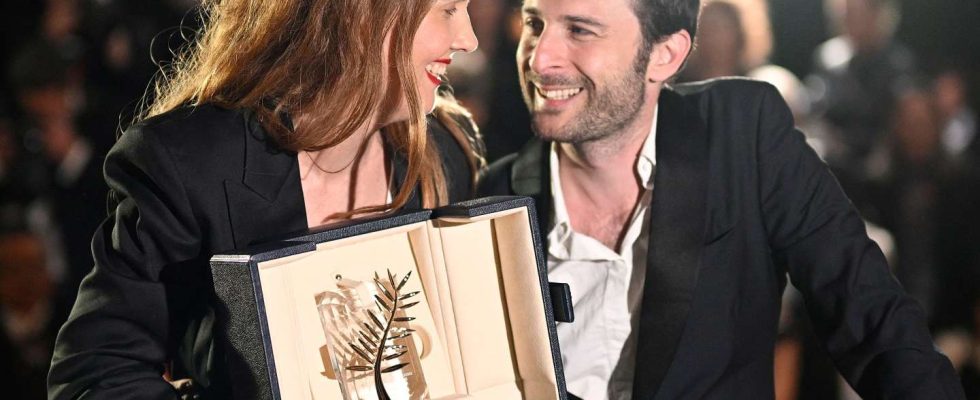At the end of the traditional fifteen-day marathon, we leave the Cannes Film Festival on a note of disappointment relative to the competition, which – with a few exceptions that won our admiration – lacked truly outstanding works this year. The “routine” of great authors less inspired than usual, the astonishing presence of a few films stuck in academicism or doped with bluster will therefore have prevailed over the aesthetic risk-taking. The regret is all the more acute since the films belonging to this last category were present in the official selection, but in other sections. Close eyes by the Spaniard Victor Erice, an immense filmmaker back after thirty years of silence, or Eureka by the great inventor of Argentinian forms Lisandro Alonso, to cite only these two works selected at Cannes Première, could on their own have restored this failing aesthetic balance.
But let’s not hide our pleasure: the jury presided over by Ruben Östlund, the Swedish director twice palmed gold with Triangle of Sadness (2022) and The Square (2017), awarded the Palme d’Or to Anatomy of a fall, by Justine Triet, one of the most inventive works of the competition. Co-written by the director and her companion, director Arthur Harari, this film, remarkably uncertain, follows the trial at the assizes of a writer (Sandra Hüller) accused of the murder of her husband (Samuel Theis).
On the stage of the Palais des Festivals, Justine Triet will have been the only artist of this ceremony devoted to thanks to deliver a word felt, evoking “the historic challenge to the pension reform, shockingly denied and repressed”. She also rebelled against “the commodification of culture that the neoliberal government defends”, which one is “in the process of breaking the French cultural exception”. Justine Triet is the third woman to receive Cannes’ highest award, after Jane Campion, with The piano lesson (1993), and Julia Ducournau, with Titanium (2021).
Social debates
Two of the strongest works in this competition will also have been rewarded with the Grand Prix for The Zone of Interest by the Englishman Jonathan Glazer, an exemplary and fascinating film on the representation of the death camps, and the Jury Prize for Dead leaves signed by this cantor of freedom and melancholy humor that is the Finn Aki Kaurismäki. Any prize list generating its great forgotten ones, we will have a thought for Last summer, film of a mad audacity which marked the return to the cinema of Catherine Breillat, for The Chimera by the Italian Alice Rohrwacher, whose poetic power enchanted, finally for Youth (Spring)by the Chinese Wang Bing, and his extraordinary ability to stage reality.
You have 55.92% of this article left to read. The following is for subscribers only.

